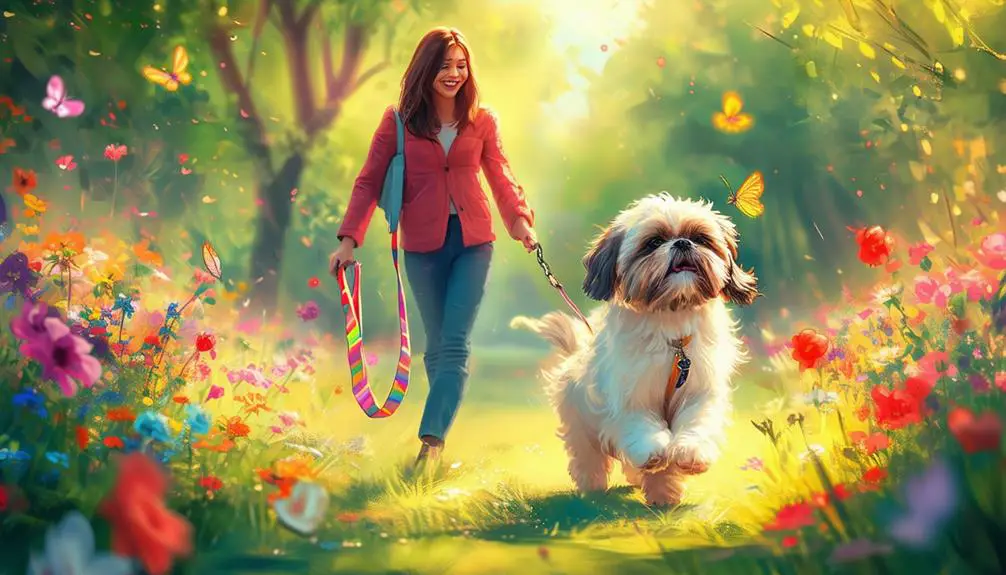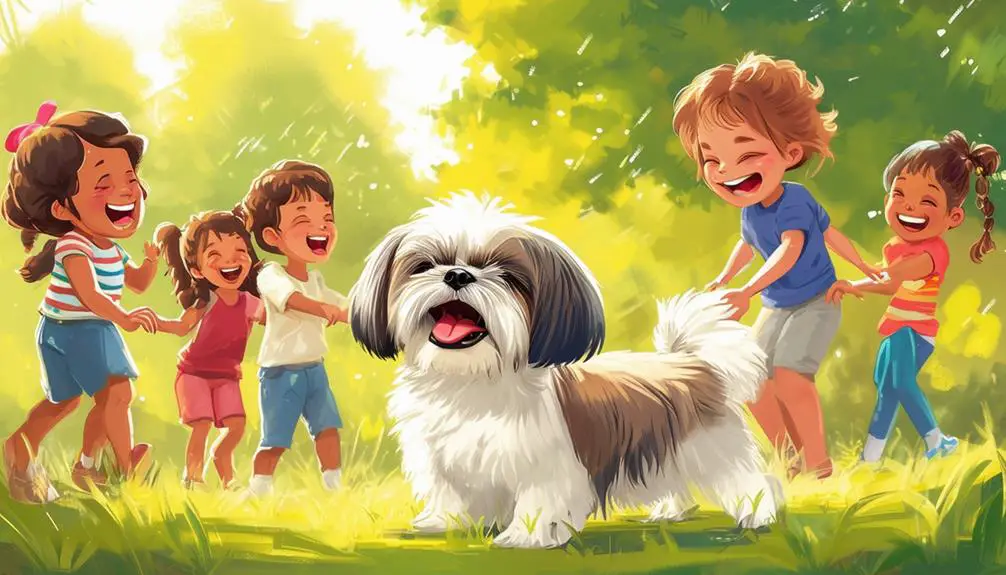
Socializing your Shih Tzu is a crucial part of their development, helping them become well-adjusted, friendly, and confident dogs. Proper socialization can prevent behavioral problems and ensure that your Shih Tzu can handle various situations and environments with ease. This guide provides practical tips on how to effectively socialize your Shih Tzu to foster a happy and balanced companion.
Understanding the Importance of Socialization
Why Socialization Matters
Socialization involves exposing your Shih Tzu to different people, animals, environments, and experiences in a positive and controlled manner. This process is vital for preventing fear, anxiety, and aggression, which can arise from unfamiliar situations. Well-socialized Shih Tzus are more adaptable, friendly, and confident, making them easier to manage and more enjoyable companions.
The Critical Socialization Period
The most critical period for socializing a Shih Tzu is between 3 and 14 weeks of age. During this time, puppies are more receptive to new experiences and less likely to develop fear responses. However, socialization should continue throughout their life to reinforce positive behaviors and adaptability.

Starting with Positive Experiences
Creating Positive Associations
Begin by introducing your Shih Tzu to new experiences gradually and in a positive manner. Use treats, praise, and gentle encouragement to create positive associations with new people, places, and situations. For example, when meeting new people, have them offer treats and speak softly to your puppy.
Controlled Environments
Start socialization in controlled environments where you can manage the interactions and ensure your Shih Tzu feels safe. Invite friends and family over to meet your puppy and arrange playdates with vaccinated and friendly dogs. Controlled environments reduce the risk of overwhelming your puppy and help build their confidence.
Introducing Your Shih Tzu to Different People

Variety of People
Expose your Shih Tzu to a variety of people, including men, women, children, and individuals of different ages and ethnicities. This exposure helps your puppy become comfortable around diverse individuals and reduces the likelihood of fear or aggression towards specific groups.
Positive Interactions
Ensure that all interactions are positive and non-threatening. Teach people to approach your Shih Tzu calmly and to avoid sudden movements or loud noises. Allow your puppy to initiate contact and retreat if they feel uncomfortable. Gradually, they will learn that new people are not a threat.
Socializing with Other Dogs and Animals
Meeting Other Dogs

Introduce your Shih Tzu to other dogs in a controlled and safe environment. Start with calm, well-socialized dogs that are unlikely to overwhelm or intimidate your puppy. Monitor their interactions closely and intervene if necessary to prevent negative experiences.
Exposure to Other Animals
Besides dogs, expose your Shih Tzu to other animals such as cats, birds, and small pets. Supervise these introductions to ensure they are positive and stress-free. Early exposure to different animals can reduce the likelihood of fear or aggression later in life.
Exposing Your Shih Tzu to Different Environments
Variety of Settings
Take your Shih Tzu to various environments, such as parks, busy streets, pet-friendly stores, and quiet rural areas. This exposure helps them adapt to different sights, sounds, and smells, making them more confident and less likely to be fearful in new settings.

Gradual Exposure
Introduce new environments gradually, starting with less challenging settings and progressing to more complex ones. Allow your Shih Tzu to explore at their own pace and provide plenty of positive reinforcement. This gradual approach helps build their confidence and reduces the risk of overwhelming them.
Handling Everyday Situations
Household Noises
Expose your Shih Tzu to common household noises such as vacuum cleaners, hairdryers, and doorbells. Start with low volumes and gradually increase the intensity to help your puppy become accustomed to these sounds. Use treats and praise to reinforce calm behavior.
Car Rides
Take your Shih Tzu on short car rides to help them get used to traveling. Begin with brief trips around the block and gradually extend the duration. Make car rides a positive experience by offering treats and ensuring your puppy feels secure.

Addressing Fearful or Aggressive Behavior
Recognizing Signs of Fear
Learn to recognize signs of fear in your Shih Tzu, such as trembling, hiding, or excessive barking. If your puppy shows signs of fear, remove them from the situation and provide comfort. Forcing them to face their fears can worsen their anxiety.
Positive Reinforcement
Use positive reinforcement to address fearful or aggressive behavior. Reward calm and confident behavior with treats and praise. Avoid punishing your Shih Tzu for fearful reactions, as this can increase their anxiety and make the problem worse.

Enrolling in Puppy Classes
Benefits of Puppy Classes
Puppy classes provide a structured environment for socializing your Shih Tzu with other puppies and people. These classes are typically led by experienced trainers who can offer guidance and support. They also provide an opportunity for your puppy to learn basic obedience and manners.
Choosing the Right Class
Choose a puppy class that focuses on positive reinforcement and socialization. Look for classes that are well-organized and have a controlled environment. Ensure the class size is small enough to allow for individual attention and that the trainer is experienced with small breeds like Shih Tzus.
Ongoing Socialization

Lifelong Process
Socialization is not a one-time event but a lifelong process. Continue exposing your Shih Tzu to new experiences, people, and environments throughout their life. Regular socialization helps reinforce positive behaviors and prevents the development of fear or aggression.
Consistent Reinforcement
Consistently reinforce positive behavior with treats, praise, and affection. Maintain a routine that includes regular walks, playdates, and outings to keep your Shih Tzu engaged and well-socialized. This ongoing effort ensures that your dog remains confident and well-adjusted.
Conclusion
Socializing your Shih Tzu is essential for their emotional and behavioral development. By introducing them to new experiences, people, animals, and environments in a positive and controlled manner, you can help them become friendly, confident, and well-adjusted dogs. Remember, socialization is a lifelong process that requires patience, consistency, and positive reinforcement. With proper socialization, your Shih Tzu will thrive as a beloved and balanced companion.


